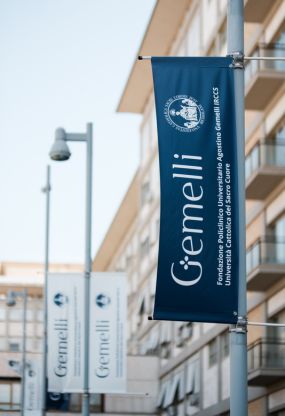Accredited School
The specialist in Audiology and Phoniatrics must possess the professional skills and aptitude necessary to comply with national and European standards related to the clinical practice of the discipline. During the training course, they must have gained theoretical, scientific and professional knowledge in the field of pathophysiology, clinical and therapy of diseases of the auditory and vestibular system and clinical pathophysiology and therapy of swallowing and auditory communication in children and adults. The areas of expertise are: auditory pathophysiology, pathophysiology of auditory communication, audiological and phoniatric functional and instrumental semeiotics, clinical methodology and medical and surgical therapy in audiology and phoniatrics and the rehabilitation of communication pathologies also through the prescription of prosthetic devices. They must also acquire the ability to interact positively with other health professionals and pursue the goal of constant updating through continuous training.
The student will be able to compete for the diploma after completing the professionalizing activities.
As part of the training course, the student will have to learn the scientific bases of the type of School in order to achieve full maturity and professional competence that includes an adequate ability to interpret scientific innovations and a critical knowledge that allows him to consciously manage both assistance and his own updating; In this context, participation in meetings, congresses and the production of scientific publications and periods of attendance in qualified Italian and foreign institutions useful for his/her training may be envisaged.
Educational objectives of the type of School: the student must acquire knowledge of:
- mechanisms underlying auditory perception and language development and learning in development;
- the theoretical foundations of linguistic communication and human phonetics;
- functional and instrumental semeiotics, the clinical methodology of audiological and phoniatric pathologies and the theoretical bases of prevention and their application in the field of remediation of auditory communication disabilities;
- medical, surgical, prosthetic and rehabilitative therapy of audiological, otological and phoniatric pathologies; acquire sufficient skills to prescribe a habilitative and rehabilitative program for the correction of the main disabilities induced by audiological and phoniatric pathologies both for the developmental age and for adults and the elderly;
- instrumental (phonometric) methods for the analysis of noise pollution and the clinical and medico-legal evaluation of technoacusias.
The following are compulsory professionalizing activities for the achievement of the educational purposes of the type:
- clinical activity on 350 patients suffering from audiological and phoniatric pathologies, of which at least 20% in developmental age and 20% in geriatric age;
- 100 complete audiological and phoniatric diagnoses, of which at least 25% with direct responsibility;
- 20 ERA surveys, of which at least 40% in patients in developmental age;
- 25 nasopharyngo-laryngoscopies and 25 laryngostroboscopias;
- 10 analysis of the acoustic spectrum of the voice;
- prescription and control of at least 30 hearing aids, at least 10% of which are surgically implanted;
- prescription and participation in 20 rehabilitation of communication pathologies, of which at least 5 in developmental patients and 5 in post-surgical patients;
- 1 program for the prevention of communication pathologies;
- 15 surgeries for the resolution of ear diseases that have caused hearing loss;
- 14 surgeries for the surgical correction of dysphonias due to pathology of the vocal cords and vocal tract;
- 15 classifications of language disorders;
- 10 diagnostic frameworks of Specific Learning Disorders (SLD);
- 10 diagnostic frameworks of swallowing disorders;
- 20 vestibular examinations (VideoOculoscopy);
- participation in 45 auditory assessments in the neonatal setting (screening);
- participation in 20 diagnoses of neonatal hearing loss with prescription of the prosthetic and rehabilitation therapeutic process, of which at least 20% with direct responsibility.
For the AUDIOLOGY AND PHONIATRICS typology (divided into four years of the course), the training objectives are:basic training objectives: the deepening of embryogenetic, morphological and structural knowledge and the pathophysiology of the organs and systems responsible for auditory and vestibular function and verbal production and perception and to learn the fundamental notions of physics and electronics in order to acquire the preparatory knowledge for a correct clinical-diagnostic framework and for medical, surgical, prosthetic and rehabilitative therapeutic practice.
Related or supplementary objectives are the basic notions of pathophysiology, semiology and clinical of medical and surgical specialties useful for the diagnosis and therapy of pathologies that may have areas in common with audiology and phoniatrics.
Acquisition of the notions of biomedical technology, electrical and electronic measurements and bioengineering and computer processing necessary for functional diagnostic methodologies and prosthetic and rehabilitation methodologies in audiology and phoniatrics.
The basic notions for a medico-legal evaluation of injuries and disabilities in the audiological and phoniatric district and the notions of professional ethics necessary for the correct performance of the profession of specialist in audiology and phoniatrics.
Knowledge of the general principles of epidemiology and public health in order to plan primary and secondary prevention interventions of diseases involving human communication.




